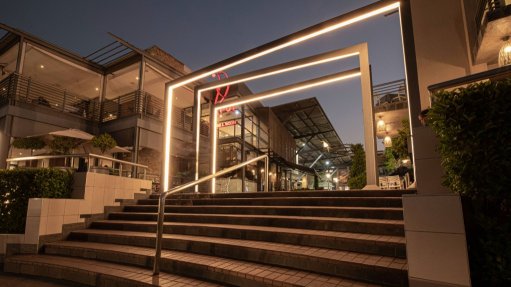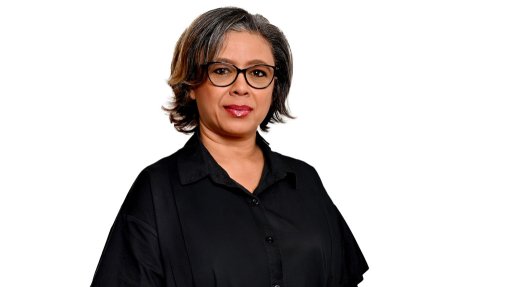Africa’s turbulent year ahead
As another tumultuous year closes, global political tectonic plates are still shifting, causing political earthquakes and violent eruptions across the US, Europe, the Middle East and Africa.The year ahead promises to be equally turbulent as the world’s most powerful President-Elect launches political and economically damaging salvoes against the Brics bloc, China and anyone else challenging US assumed supremacy, and as America First lays to rest – at least for four years – the concept of multilateralism.
If 2024 was a year of elections, it was also a year where the incumbents received a thrashing. The most historic in Africa was Botswana, which marked its democratic “coming of age” with the defeat of the Botswana Democratic Party, which had been in power for 58 years, and bringing about a complete change of power as the Umbrella for Democratic Change (UDC) coalition won both the Presidency and Parliament in October. UDC leader Duma Boko officially took over as President from Mokgweetsi Masisi on November 4.
Meanwhile, Senegal – where Bassirou Diomaye Faye’s election victory from prison to the Presidency marked the first of 2024’s political earthquakes – continued the political upheaval by calling snap legislative elections on November 17. Faye’s party, the ruling Pastef, secured 130 seats in the 165-seat National Assembly, giving him a mandate for substantial reforms. In another, long-overdue coming- of-age moment, Faye informed France Senegal would like it to close a military base it has had in Dakar since independence in 1960.
Perhaps the most significant, yet equally positive, loss of power of an incumbent is in South Africa, where the African National Congress (ANC) lost its majority and elected not to go into coalition with a radical anti-business party such as the Economic Freedom Fighters or the corruption-implicated uMkhonto weSizwe Party (MKP). Instead, the centre-left ANC and centre-right Democratic Alliance coalition, together with President Cyril Ramaphosa and Finance Minister Enoch Godongwana’s continuity, has provided stability and, 100 days into the Government of National Unity (GNU) in September, the country had already seen improvements in economic and investor sentiment. The GNU was reportedly a factor in steel manufacturer ArcelorMittal’s decision to cancel plans to close two steel plants, as well as Toyota opening a new $70-million auto parts facility and Anglo American’s plans for a new $625-million iron ore investment.
While these events have restored the value of democracy and the benefits of voting across the continent, the Sahelian coup countries that sought to form a new model of autocracy to challenge the democratic model failed. Mali, Burkina Faso and Niger’s quitting Ecowas, ordering UN, French, US and EU troops to leave, and relying on Russian mercenaries and military advisers have failed in the primary objective to protect the AES and its people. The security vacuum left by Western troops’ departure has opened the door to Islamist extremist and Tuareg separatist insurgents, undermining security for the population and increasing uncertainty for businesses trying to operate there. Similarly, the continuing civil war between Russia and the UAE-backed Rapid Support Forces rebels and the Sudan government forces has created a humanitarian crisis and a nationwide economic collapse.
Although Sudan’s economic collapse is likely to blight the overall picture of economic recovery of North African countries, economic activity in sub-Saharan Africa looks set to rebound significantly in 2025 as the continent continues its recovery from Covid-19. World Bank figures published in October show growth improving from 2.4% in 2023 to 3% in 2024 and 4 % in 2025–2026. Countries such as Namibia and Senegal are set to post growth rates of 8%, thanks to gas development. However, severe drought has seen Zambia’s growth forecast trimmed to 1.2% – a 25-year low.
While it will be mostly slow and steady growth, the main economic problem is the continent’s indebtedness. South Africans worry about debt hitting 70% of GDP while small countries such as Cape Verde struggle with debt higher than GDP. Just under a year ago, Ethiopia became the latest country to default on its debt. Nevertheless, the year has seen some significant debt restructuring successes, with the most recent being Zambia securing IMF disbursements of $185.5-million following a fund review. Ghana, the continent’s most indebted country, managed to restructure its debt with creditors, including $13.1-billion with Eurobond holders this year. For the first time since 1948, West Africa’s CFA franc currency, used in 14 countries and pegged since colonial times to the French currency (now the euro), has come under significant pressure. The AES constitutional document makes provision for a currency and whether this makes economic sense or not, cutting this withered umbilical cord is now possible, if not likely.
Africa’s slow return to economic health, high youth unemployment, and the so-called GenZ’s connectedness have proved a volatile cocktail. Kenya’s President William Ruto abandoned his election promise to work for the poorest of the ‘hustler nation’, imposing a swathe of taxes – including a 16% sales tax on bread, a 25% duty on cooking oil and an annual tax of 2.5% on vehicle values. The taxes hit GenZ hard, prompting nationwide protests lasting close to two months from June. The backlash forced Ruto to scrap his Finance Bill, sack his Cabinet and rethink. In what Kenyans see as a political manoeuvre to distract from pressing national issues of unchecked corruption, the economy, protests and strikes, Ruto sought to shift the blame onto his deputy, Rigathi Gachagua, whom the Senate impeached for undermining the President, among other charges. Similarly, in Nigeria in August and possibly inspired by Kenya, GenZ reacted to the high cost of living and poor prospects with nationwide protests that shut down the country. Northern governors of Kaduna, Plateau, Borno, Yobe, Jigawa and Kano, where significant violence occurred, imposed night-time curfews. President Bola Tinubu eventually addressed the nation in a live broadcast but without addressing protesters’ core demands.
Noteworthy in 2024 is the new generation driving the political and economic environment. Faye at 44 is Africa’s youngest democratically elected leader, bringing new ideas and a fresh approach in West Africa. Botswana’s Boko is 54. The power of organised, continentally linked and activist GenZ has sparked fear in hitherto insouciant political elites and makes restoring economic growth to sub- Sahara an imperative for political stability in 2025, notably in its anchor economies – South Africa, Nigeria and Kenya.
Article Enquiry
Email Article
Save Article
Feedback
To advertise email advertising@creamermedia.co.za or click here
Comments
Press Office
Announcements
What's On
Subscribe to improve your user experience...
Option 1 (equivalent of R125 a month):
Receive a weekly copy of Creamer Media's Engineering News & Mining Weekly magazine
(print copy for those in South Africa and e-magazine for those outside of South Africa)
Receive daily email newsletters
Access to full search results
Access archive of magazine back copies
Access to Projects in Progress
Access to ONE Research Report of your choice in PDF format
Option 2 (equivalent of R375 a month):
All benefits from Option 1
PLUS
Access to Creamer Media's Research Channel Africa for ALL Research Reports, in PDF format, on various industrial and mining sectors
including Electricity; Water; Energy Transition; Hydrogen; Roads, Rail and Ports; Coal; Gold; Platinum; Battery Metals; etc.
Already a subscriber?
Forgotten your password?
Receive weekly copy of Creamer Media's Engineering News & Mining Weekly magazine (print copy for those in South Africa and e-magazine for those outside of South Africa)
➕
Recieve daily email newsletters
➕
Access to full search results
➕
Access archive of magazine back copies
➕
Access to Projects in Progress
➕
Access to ONE Research Report of your choice in PDF format
RESEARCH CHANNEL AFRICA
R4500 (equivalent of R375 a month)
SUBSCRIBEAll benefits from Option 1
➕
Access to Creamer Media's Research Channel Africa for ALL Research Reports on various industrial and mining sectors, in PDF format, including on:
Electricity
➕
Water
➕
Energy Transition
➕
Hydrogen
➕
Roads, Rail and Ports
➕
Coal
➕
Gold
➕
Platinum
➕
Battery Metals
➕
etc.
Receive all benefits from Option 1 or Option 2 delivered to numerous people at your company
➕
Multiple User names and Passwords for simultaneous log-ins
➕
Intranet integration access to all in your organisation


















